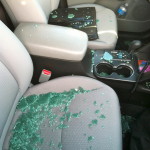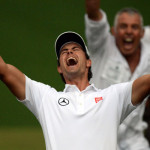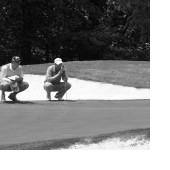This is what (we) did at the Tom Petty show. There is a mental toughness component to it (of course). They don’t give front row seats away, you have to pay for them or win them.
How to get front row at ANY show
A colleague of mine, Tom, was part of the group at the show. Our group of 8 people were camped out in the lawn at this concert and near the end, Tom announced, “I’m going down to the front row.” Off he went… Just like that…
Now, before we go further, Tom is blind…. so, actually Tom and his guide dog left to get front row.
After about 10 seconds, I say to the others, “I’m going with him” and run to catch him twenty feet down the path toward front stage.
How to get front row, takes audacity, because there are people employed to keep people from getting down front… Here’s what to do…
Rule #1: Don’t stop!
I have been front row at many places before, and honestly most places I have been, I probably shouldn’t have. It all stems from employing rule #1.
Here’s how it went:
Row 60-We walked right past the first two set of ticket checkers without any problem to get front row. Now, if it was just me, there may have been a problem, but they looked at Tom and his guide dog and we kept moving….
Row 40-The second set of ticket takers also saw us, asked for our tickets, and we employed rule #1. They also saw Tom and his guide dog and they let us pass. We kept moving…
Row 30- We hit the lower level of seats and now needed to find a new path, we shuffled left and found a row leading us down. The lady checking our tickets actually grabbed us and now I employed the verbal response of “we are okay.” She let go and we kept moving…
Row 20- We were now in Box Seats Land, meaning the guide dog had a better chance of getting us closer than I did, because I was in front of and in-between sets of people (these people don’t dance either, they just sit or stand). I had no place to go.
Row 18- We slipped in with a group of people who looked at us, but did not say anything. Now, the lady who had grabbed us had followed us and was now standing right behind us. I told her we were here for one song and that was it. “Was that okay?” She said “1 song!”
I looked around and during the daytime would have seen the only way to the front row was from the sides not the frontal assault we had chosen. We were stuck.
We stayed until the entire encore was over and left the concert with everyone else…. We were close, 18th row… Now, if I knew the path, we would have made it, or maybe if Tom was by himself, he would have made it. Either way, this is the strategy of how you make it.
In life, whatever you want to accomplish, you’ll have to be bold and just do it. Don’t stop just because people will try to stop you, just keep moving!
Dr. Rob Bell is a Sport Psychology Coach. His company DRB & associates is based in Indianapolis. Some clients have included: University of Notre Dame, Marriott, and Walgreens. Check out all the books on Mental Toughness-










